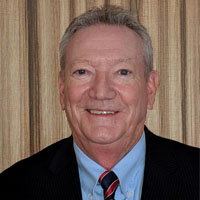Bonita Collection Lawyer, California
Sponsored Law Firm
-
 x
x

Click For More Info:
-
Fitzgerald & Campbell, APLC
400 N. Tustin Avenue Suite 401 Santa Ana, CA 92705» view mapBankruptcy & Debt Lawyers Who Solve Serious Problems
We are a motivated, respected, and experienced law firm that provides affordable services that get results.
800-732-9061
Craig Eugene Dwyer
✓ VERIFIEDBankruptcy & Debt, Credit & Debt, Collection, Trusts, Wills & Probate
Craig E. Dwyer, Esq., has represented both debtors and creditors in Chapter 7, 11 and 13 Bankruptcy Cases in San Diego, Orange, Los Angeles and Rivers... (more)
FREE CONSULTATION
CONTACTKerry Denton
Credit & Debt, Collection, Bankruptcy, Bankruptcy & Debt
FREE CONSULTATION
CONTACTDean Theodore Janis
Securities Fraud , Contract, Collection, Commercial Bankruptcy
Status: In Good Standing Licensed: 35 Years
James Richard Robertson
Litigation, Lawsuit & Dispute, Consumer Protection, Collection
Status: In Good Standing Licensed: 25 Years
Lorenda S Stern
Divorce, Criminal, Collection, Bankruptcy & Debt
Status: In Good Standing Licensed: 16 Years
Daniel Guinn Shay
Credit & Debt, Collection, Consumer Bankruptcy, Bankruptcy
Status: In Good Standing Licensed: 17 Years
Benjamin L Pavone
Litigation, Civil Rights, Collection, Personal Injury
Status: In Good Standing Licensed: 29 Years
Jamie Lyn Handrick
Landlord-Tenant, Real Estate, Contract, Collection
Status: In Good Standing Licensed: 23 Years
 Gregory Fitzgerald Santa Ana, CA
Gregory Fitzgerald Santa Ana, CA AboutFitzgerald & Campbell, APLC
AboutFitzgerald & Campbell, APLC Practice AreasExpertise
Practice AreasExpertise

